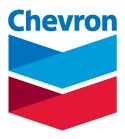Preparation is Key
Preparing for an interview requires research and practice to effectively present your alignment with the hiring manager's needs. To help you succeed in your interview, keep the following tips in mind.Master the Art of Communication
There is an art to the interview, which is built around communication skills. It starts with engaged listening and is carried through your ability to keep a conversation relevant and on-topic. Make sure you hear, understand, and respond to the actual questions asked by your interviewer, rather than answering questions you think they want you to answer. Guide the interview conversation to ensure you cover each of your discussion points to demonstrate your unique alignment with their needs.Practice Makes Perfect
Use the "Mock Interview" online resource to review your responses to tough questions, observe and adjust your presentation style and body language. Practice answering sample interview questions as soon as possible to communicate the skills, accomplishments, and experience that best serve their needs. Help the interviewer not only hear but see that you are the best candidate to meet their needs. Remember, you will perform like you practice.Prepare a Portfolio
The portfolio you carry into the interview should contain 8-10 pages of your printed research, marked-up so they can see your preparation research. Use that research to prepare 8-10 targeted questions related to areas of interest to refer to when they ask if you have questions. It may be hard to remember some questions in the excitement of the moment, so you will be able to calmly refer to them in your notes. If you are a writer, graphics specialist, or developer, be prepared to showcase samples of your work.The Interview Process
Preparing for an interview is essential to make a good impression and increase your chances of landing the job. Here are some tips to help you ace the interview process:- Pack your portfolio with the essentials. If you have a portfolio, make sure it includes 6-8 extra copies of your resume and references. You should also bring research notes and a separate page with your prepared written questions that you can refer to during the interview.
- Make a good first impression. Arrive at the interview early to allow plenty of time for parking, walking, and inclement weather. Stop at a restroom and check your appearance. Dress professionally, smile, make eye contact, and shake hands firmly.
- Follow the interviewer's lead. Wait for the interviewer to invite you to take a seat and sit attentively without slouching or appearing too relaxed. Don't place your materials on the employer's desk without asking for permission first.
- Master the first impression. The first few minutes of the interview are crucial. Prepare for the "Tell me a little about yourself" question and focus on sharing a short story that aligns with the job and how you can make a positive impact for the organization.
- Memorize key points and budget time. Avoid rambling or sharing negative stories. Memorize the key points you plan to deliver and budget the appropriate time to communicate each point.
- Wait for your cues. Avoid discussing salary or benefits unless the interviewer initiates the discussion. Research salary rates for someone with your qualifications and discuss a salary range based on facts.
- End with courtesy and confidence. Recap the key messages you want to deliver and exit with courtesy and confidence. If you're interested in the job, let the interviewer know that you want the job and want to be part of their team.
By following these tips, you can show the interviewer that you're the best candidate for the job and increase your chances of landing it. Remember to stay enthusiastic and positive throughout the interview, and help close the sale with your excitement and energy for the job. Your excitement and energy for the job sells and it can be contagious.
